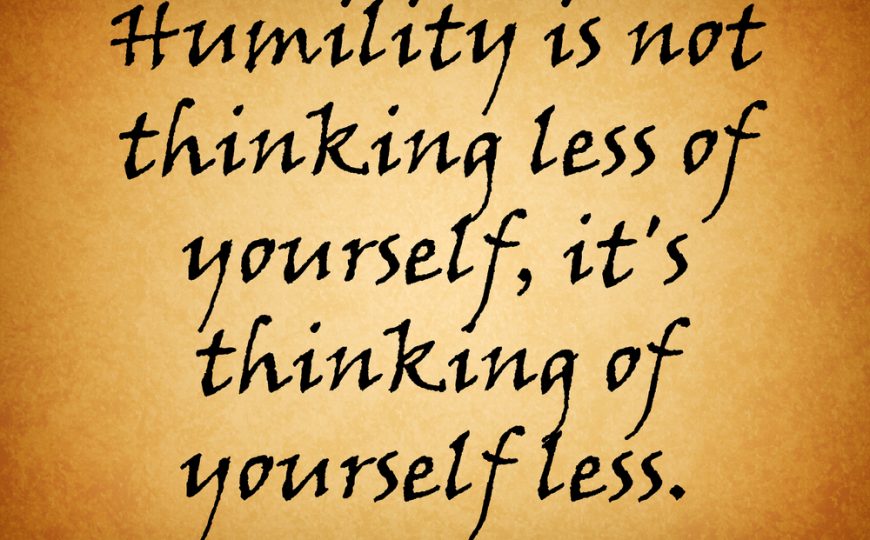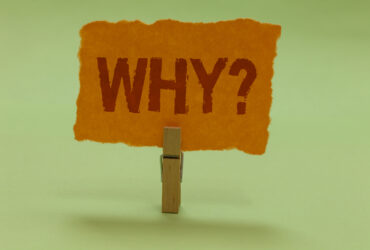With so much focus on self-esteem we know that self-esteem is very important. Clearly though our approach to self-esteem missed the mark (See Simon Sinek’s famous talk on Millenials). By praising people for doing things that are not praise worthy and exaggerating the importance of those actions we have fostered a generation with lower, rather than higher, self-esteem.
![]() True self-esteem is knowing exactly who you are, your gifts, strengths and weaknesses. In the post on Awe I left you with this question, “What is amazing about you?”. Self-esteem is what gives a person the strength to do the right thing and stand strong in the face of adversity.
True self-esteem is knowing exactly who you are, your gifts, strengths and weaknesses. In the post on Awe I left you with this question, “What is amazing about you?”. Self-esteem is what gives a person the strength to do the right thing and stand strong in the face of adversity.
Unfortunately, humility has been maligned. Humility is not an inferiority complex, quite the opposite. ![]() Humility is self-esteem. It is knowing that your natural gifts are just that, gifts. You don’t get credit for the gifts you get. You get credit for how you choose to use your gifts.
Humility is self-esteem. It is knowing that your natural gifts are just that, gifts. You don’t get credit for the gifts you get. You get credit for how you choose to use your gifts. ![]() Just because someone walks around with “airs” or a swagger does not mean they have healthy self-esteem. The healthy person does not swagger, as they do not take credit for their gifts, rather they take on the burden of using their gifts responsibly to serve others. They take responsibility for mistakes and try to learn from their mistakes. Have you noticed how in this generation of lower self-esteem fewer people take responsibility? Even little things like saying “excuse me” to pass by in the supermarket. In the last few years, since I noticed this phenomenon, I can count on one hand how many times people have said “excuse me” to others. There are those who will wait patiently, but the mass majority gets angry that others don’t notice them. I know rumor has it that parents and teachers have eyes in the back of their head, but I expect other adults to know that isn’t so. It is interesting that the default is anger. This goes back to the ATM idea. It is precisely because they have decided that this other person is deliberately disrespecting them, when in fact the other person does not even know they are in the store, they are thinking about their groceries. This ATM speaks to a lack of self-esteem, they feel so unimportant that they have to let you know just how important they are. This is a sad cycle as they then feel bad for how they behaved, but will blame the person who was in their way instead of having the humility to say, “I acted inappropriately”. (That actually did happen once, a (strange) couple was arguing in the supermarket and I quietly said something because I was embarrassed for them. They took it well and even thanked me later, so kudos to them for their humility.)
Just because someone walks around with “airs” or a swagger does not mean they have healthy self-esteem. The healthy person does not swagger, as they do not take credit for their gifts, rather they take on the burden of using their gifts responsibly to serve others. They take responsibility for mistakes and try to learn from their mistakes. Have you noticed how in this generation of lower self-esteem fewer people take responsibility? Even little things like saying “excuse me” to pass by in the supermarket. In the last few years, since I noticed this phenomenon, I can count on one hand how many times people have said “excuse me” to others. There are those who will wait patiently, but the mass majority gets angry that others don’t notice them. I know rumor has it that parents and teachers have eyes in the back of their head, but I expect other adults to know that isn’t so. It is interesting that the default is anger. This goes back to the ATM idea. It is precisely because they have decided that this other person is deliberately disrespecting them, when in fact the other person does not even know they are in the store, they are thinking about their groceries. This ATM speaks to a lack of self-esteem, they feel so unimportant that they have to let you know just how important they are. This is a sad cycle as they then feel bad for how they behaved, but will blame the person who was in their way instead of having the humility to say, “I acted inappropriately”. (That actually did happen once, a (strange) couple was arguing in the supermarket and I quietly said something because I was embarrassed for them. They took it well and even thanked me later, so kudos to them for their humility.)
Humility also means knowing your limitations, knowing that you do not know everything and cannot do everything. It means knowing when to ask for help. There is an old expression that loosely translates into “the embarrassed person doesn’t learn”. Why is this so? Because the one with poor self-esteem is too embarrassed to ask, they think their question is “stupid” and embarrassing. As educators, it is important for us to be aware that a lot of this embarrassed attitude comes from our response to children’s questions. A two-year old’s favorite word (after “no” 😉) is “why?” Understandably, busy parents don’t necessarily have the time for all those whys and that’s o.k. What is important is our response and the tone behind it. Does your child walk away from their interaction with you feeling like s/he is bothering you or like you wish you could spend more time with him/her but regrettably can’t? This applies to classroom teachers as well. Of course you have a curriculum to cover and an entire class to engage, you cannot be derailed by one student’s questioning. But how does the student feel after your interaction? Have you built his/her self-esteem with a positive response that encourages further questions or are you trying to give the impression that they are bothering you and you are wise to the fact that the question is meant to derail the class? Are you instilling fear or humility? Fact is you do not know for sure why this student asked that question as you are not a mind reader. The important thing is that your classroom be a safe space and that begins with you judging favorably. You also help cultivate healthy humility with a positive response to situations that can be taken positively or negatively (as is the case with most situations). In this clip titled titled “My Momma Said!” Rita Pierson demonstrates rather elegantly (and humorously) how she humbly accepts that she needs the parents’ help in enforcing her school rules and that in spite of her superior pedagogical training she cannot approach parents or students with an arrogant attitude that she knows better than they do.
Another area in which lack of humility shows itself is when a person denies a gift or a strength because they worry what other people will think. If you are interested in an area that is not of common interest you should have the self-esteem to appreciate that part of your personality is part of your uniqueness. That makes it good, not bad. If you use this for good you should be proud, not ashamed of it. Find like-minded people who share your interest. Think about how many people with learning “disabilities” were made to feel bad about their learning differences and then because of their differences went on to accomplish great things. Recently I was introduced to Jack Kwik, who calls himself, “the boy with the broken brain”. He now teaches people how to learn better. One of his techniques is call the F.A.S.T. Method. Appropriately (for this post) the “F” stands for Forget i.e. come into learning with humility as though you have no prior knowledge. This clip encapsulates many of the ideas we have been discussing here.
![]() Now that you know it is important to cultivate humility what are some other ways you can do so besides for encouraging questions with an attitude of “there are no stupid questions”?
Now that you know it is important to cultivate humility what are some other ways you can do so besides for encouraging questions with an attitude of “there are no stupid questions”?
You can share your ideas in the comment section.
P.S. I love inspirational quotes and I hope you like the one depicted here.
Best,
![]()



